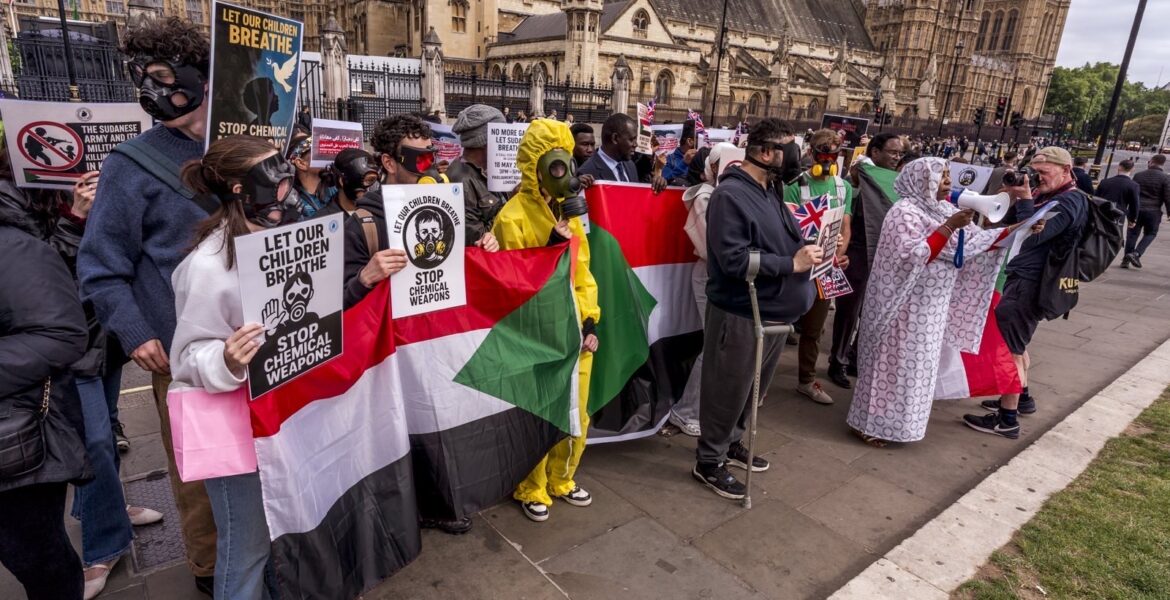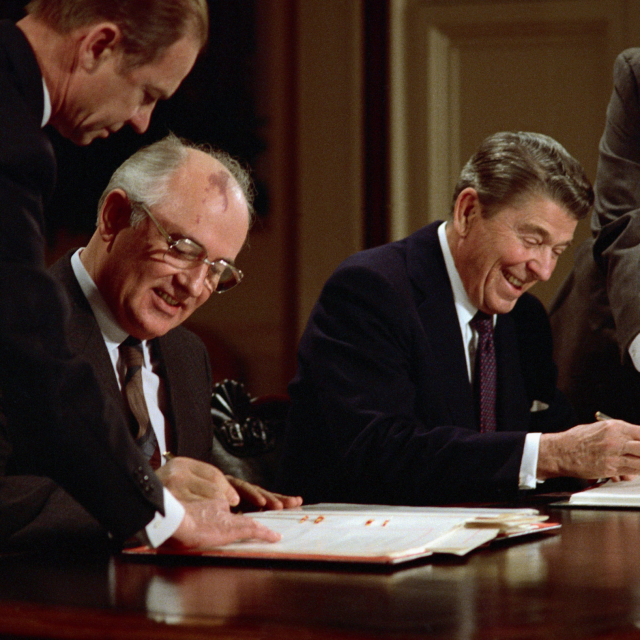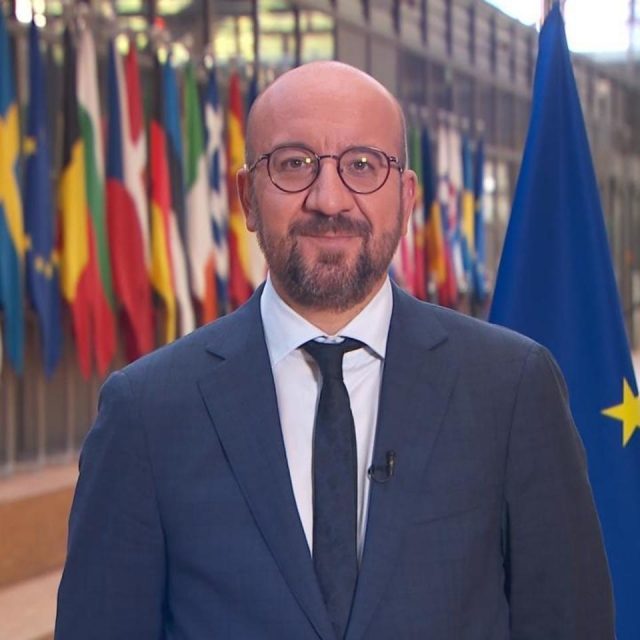A nexus of chemical weapons, terrorist groups, and a threat to the Red Sea
The US State Department notified Congress on Thursday of its determination on the use of chemical weapons by the Sudanese Armed Forces (SAF), triggering sanctions to begin in 15 days. The sanctions include restrictions on US exports and financing to the Sudanese Armed Forces. The State Department demanded that they “cease all chemical weapons use and uphold its obligations” under the Chemical Weapons Convention, an international treaty signed by nearly all countries that prohibits their use. The announcement comes as there is increasing international concern, not only about the use of chemical weapons by the SAF, but also the additional threat posed by the SAF’s close ties to terror groups based in Sudan, giving such groups access to the same weapons for potential use beyond Sudan, posing a menace to the geo-strategically important Red Sea region and shipping lanes.
The war in Sudan, despite being the largest humanitarian crisis on record, seems mostly overlooked by the international community. Tom Fletcher, head of the UN Office for the Coordination of Humanitarian Affairs, offers a stark summary of the devastation. Writing in the Financial Times, he describes how tens of thousands of Sudanese people have been killed. He details the decimation of critical infrastructure and basic services, including healthcare and education, with millions of children out of school. He describes how diseases including cholera are spreading. 25 million people are acutely hungry. More than 12 million have been displaced, including 3.8 million who fled to neighbouring countries.
Early 2025 saw the US impose sanctions upon Abdel Fattah Al-Burhan (Burhan), leader of the Sudanese Armed Forces (SAF), as detailed in this statement from the US Treasury which sets out the terms of Executive Order (E.O.) 14098, “Imposing Sanctions on Certain Persons Destabilizing Sudan and Undermining the Goal of a Democratic Transition”. The statement said: “Burhan’s SAF has committed lethal attacks on civilians, including airstrikes against protected infrastructure including schools, markets, and hospitals. The SAF is also responsible for the routine and intentional denial of humanitarian access, using food deprivation as a war tactic.”
Against the backdrop of this immense suffering, there is an even more alarming dimension to this war. Protestors gathered in London this week to draw attention to the use of chemical weapons by the SAF, whose use of such weapons has been confirmed by the United States government and Amnesty International. The New York Times has interviewed two US officials two officials who said chlorine gas was used, which causes tissue damage and suffocation. Amnesty detailed attacks in the Jebel Marra area in which 250 people including dozens of children are said to have died as a result of exposure to chemical weapons. Amnesty claims to have evidence that the SAF carried out at least 30 likely chemical weapons attacks in that area in the first half of 2024. Their evidence includes satellite imagery, over 200 interviews and expert analysis of images showing injuries consistent with chemical weapons attacks.
The use of chemical weapons is but one cause for deep concern about the safety of the Sudanese population; there is also another, the extremist organisations that form part of the SAF’s network. One senior aid worker who has worked for many years in the region explained: “You have to understand that the SAF is not “the Government”. The SAF and RSF were originally on the same side as a revolution in Sudan culminated in in an April 2019 coup. But the transitional government failed and the two parted ways. The legitimacy of the SAF is by no means clear and their connections and supporters – especially if they have their hands on chemical weapons – are to be feared”.
The SAF’s connections and supporters include the Muslim Brotherhood. Policy analyst Salah Hassan Jumaa has explained how the Muslim Brotherhood controls SAF finances and companies: “Companies and banks are now in the hands of the Muslim Brotherhood regime. They also seized influence and political decision-making…” The Islamist Al-Baraa Bin Malik Brigade also operates under the SAF, and the SAF’s dependence on them seems not insignificant—as evidenced by the Brigade’s high-profile presence alongside Burhan at the ‘liberation’ of Khartoum in March. Al Qaeda’s Abu Hudhayfah al-Sudani has made his own intentions within Sudan clear: “Sudan’s moment has come; chaos is our chance to sow the seeds of jihad,” he said in an October 2022 manifesto. ISIS is also present, ready to use the turmoil in Sudan to launder money, move weapons, and target Red Sea shipping lanes.
The fact that these groups are not only present in Sudan and linked to the SAF, but therefore also gaining proximity to chemical weapons, should be deeply alarming to the international community. SAF-linked terror organisations pose a threat not only to the civilian population of Sudan; they are building a launchpad from which, by gaining a foothold on the geo-strategically vital Red Sea, they can unleash regional chaos.




